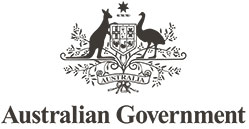Australia – Sri Lanka Trade and Investment links
The bilateral trade and investment relationship has considerable potential for growth. Two-way merchandise trade was A$389 million in 2013-14. The sectors of interest to Australia include agribusiness, food and wine, mining, education and tourism and leisure. Read the Sri Lanka country fact sheet [PDF 48 KB] for further details.
Australia has been a leading partner in Sri Lanka’s plans to revive its dairy sector. Austrade and the Export Finance and Investment Commission (Efic) have helped to develop public sector capacity and demonstrate effective dairy management systems. The growing tourism sector presents opportunities to consolidate and expand our footprint in premium foods and to introduce Australian building technologies to leisure developments.
Sri Lanka is Australia’s 24th largest tourist destination. In 2013/14 there were 64,515 departures to Sri Lanka. Tourism to Sri Lanka has grown by 15.8 per cent over the past five years. Tourism to Australia (from Sri Lanka) is also on the increase. In 2013-14 there were 21,237 short term arrivals, an increase of 5.5 per cent on the previous year.
Australia – Sri Lanka Education links
Education plays a significant role in Australia’s bilateral relationship with Sri Lanka. Australia is the second most popular tertiary study destination for international students originating from Sri Lanka with around 5,500 Sri Lankan students studying in Australia as of July 2014.
A number of Australian education providers operate in Sri Lanka, including Monash College; Edith Cowan University; University of Southern Queensland; William Angliss Institute; TAFE South Australia; University of Ballarat; and Curtin University of Technology. A number of Australian universities also have articulation programs where, for example, the first two years of a bachelor degree are completed at a Sri Lankan institute and the third year at an Australian university in Australia. The majority of Australian providers in Sri Lanka offer higher education courses or university preparation courses. There is an opportunity for Australia to further strengthen its relationship with Sri Lanka through increased collaboration in the technical and vocational education (TVET) sector.
Sri Lanka is participating in the New Colombo Plan (NCP), which presents opportunities for even closer ties between our two countries. In 2015, a total of seven mobility projects will take place in Sri Lanka under the NCP, involving 54 students. The projects cover a range of interest areas, including architectural design; business culture and innovation in Sri Lanka; and engineering design in the Indo-Pacific.
Although they are quite distinct initiatives, it is important to recall that the NCP name was inspired by the success of the original Colombo Plan and what it represents to Australians and our neighbours.



